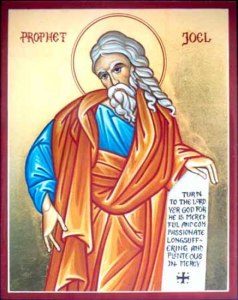Many of us have a collection of pictures and images.
Some people hold on to photos of past holidays with family and friends.
Others may have old cuttings from magazines about cinema stars, or athletes.
Others still may have religious pictures of different saints.
But there are other kinds of images, perhaps more precious.
They cannot be held in your hands, or stuck in a book, but they are no less real…
They are mental pictures, the images that our minds bring to us.
These representations are sometimes vividly present to us, or sometimes less so.
Among these images are the ones we have formed about… God.
Each one of us have his/her own pictures of who God is.
Over the years, these images may have changed –
some have been abandoned, others have been clarified, others are… still being sketched in us…
Today’s 1st reading from the Book of Wisdom (Wisdom 12:13-19) gives us a very beautiful picture of God.
It describes God as we should recognize him.
In the words of Solomon, we can perceive how God wants to be known to us.

“There is no god, other than you, who cares for everything…
Your sovereignty over all makes you lenient to all…
You are mild in judgement,
You govern us with great lenience…
You have given your children the good hope that after sin you will grant repentance.”
It is as if God’s greatness and power were… for our benefit!
He delights, not in showing strength, but in showering gifts on us.
His justice is expressed in blessing and forgiving.
This text of the Old Testament was in anticipation of what Jesus would tell us about God:
“God loved the world so much that he gave his only Son
so that everyone who believes in him may not be lost…
God sent his Son into the world not to condemn the world
but so that through him the world might be saved.” (John 3:16-17)
This is the true picture of God – the God of Jesus, our God…
Note: Another text is available on a different theme, in French, at: https://image-i-nations.com/16e-dimanche-de-lannee-a-2023/

 If we pay attention to the 1st reading of today’s feast (Numbers 6:22-27),
If we pay attention to the 1st reading of today’s feast (Numbers 6:22-27), This is what he has done in Jesus, the new-born we see in Mary’s arms.
This is what he has done in Jesus, the new-born we see in Mary’s arms. He says: “He who has ears to hear, let him hear!”
He says: “He who has ears to hear, let him hear!” ”Even now, declares the Lord,
”Even now, declares the Lord,